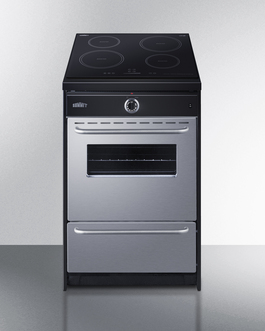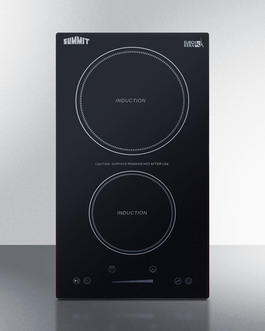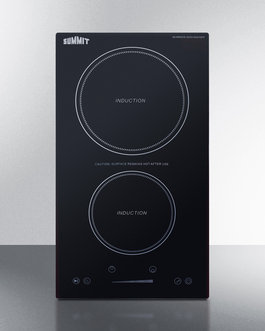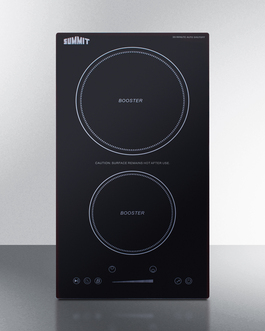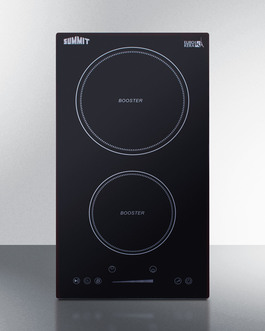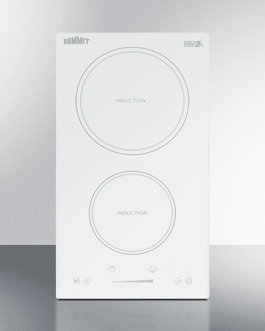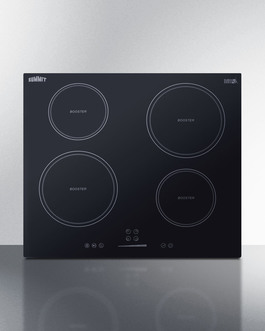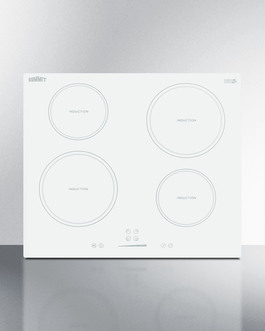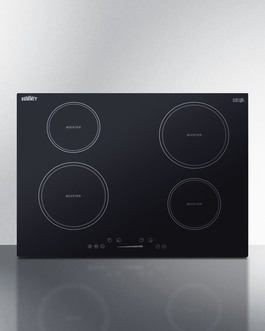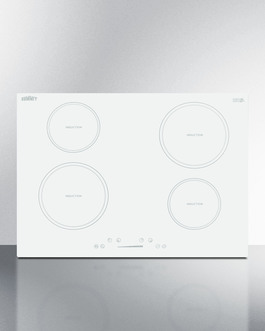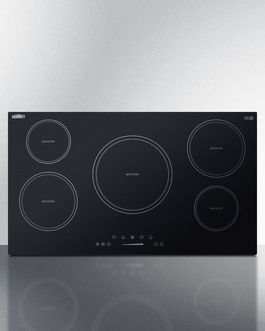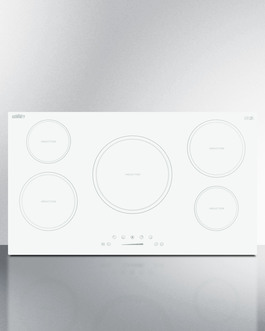More Safety. More Efficiency. More Value.
How Does Induction Cooking Work?
Conventional cooking, whether gas or electric, requires an element to create heat, then transfer it to your pot or pan through a stovetop surface. In that process, only about half of the available energy is actively used to cook your food; the other 50% or more is wasted on heating the surface and surrounding air.
In induction cooking, your pot or pan IS the heating element. When the cooktop is turned on, a copper coil underneath the surface uses electromagnets to generate an alternating electric field. This magnetic energy does not produce any heat until it comes into contact with magnetic material: your cooking vessel. The electromagnetic energy induces currents inside your pot to vibrate at a rate of 20,000-50,000 times per second, causing friction. Heat is created in your pot (not on the cooktop's surface), with 90% of the energy directly heating the contents.
Is Induction Cooking Efficient?
Yes. Cooking time in induction cooktops is greatly reduced compared to gas and electric heating. The pot--not the appliance--does the cooking, so there is no waiting for the surface to heat before it reaches your food. Tests in our laboratories demonstrated that a quart of water boiled in less than half the time of a 220 volt electric glass cooktop or coil.
In addition to speed, induction cooktops are energy efficient and therefore both environmentally and financially friendly. According the U.S. Department of Energy, induction cooktops achieve an efficiency level of 84%, more than double the 40% rate for gas and electric cookers. You save on energy costs because nearly all of the heat is used to cook your food, not warm your kitchen.
Is Induction Cooking Safer Than Other Forms of Heating?
There are no fumes, gas, or open flames released in the process of induction cooking because all the heat is magnetically generated by and in your cooking vessel. As a result, the surface of the cooktop remains cool to touch, limiting any burning accidents caused by handling a hot appliance. Since it is the pot that creates the heat, the temperature cannot surpass the maximum heat of the cookware. Injuries caused by flames or scorching coils become a danger of the past.
Another safety benefit of induction cooking is that heat only exists when magnetic cookware is creating it. If the appliance is accidentally turned on, the cooktop will remain cool if there is no pot or pan on top. Common kitchen items stored near your stove won't burn simply because the unit is hot. After removing the magnetic cookware, the interior coil is de-energized and will automatically turn off in less than thirty seconds.
How Is Induction Cooking More Convenient?
Induction surfaces are easy to clean because they have a continuous glass surface. Dirt, dust, and food have nowhere to hide. Since the entire cooktop does not get as hot as gas and electric stoves, spills do not become baked-on messes that require scrubbing or lead to staining. A gentle wipe with a damp cloth will remove most accidents.
Do I Need Special Cookware?
Because induction cooking requires magnetic energy, your cookware must be made of cast iron, steel, or magnetic stainless steel. Materials that will not work include aluminum, copper, and non-magnetic stainless steel.
Many of your current pots and pans may already be induction-friendly. In order to determine if your cookware will work on an induction surface, simply place a magnet (such as one hanging on your refrigerator) on the bottom of the pan. If the magnet sticks, the pan will cook.
Related Links:
Induction Cooktops by SUMMIT
Cooking By SUMMIT
Deluxe Gas Cooktops Made In Italy
Custom Trim Kits For All Cooktops
Downloadable Catalogs:
Built-In Undercounter Refrigeration Line
Apartment Sized Refrigerator-Freezers
Beer, Wine, & Outdoor Collection
Hospitality Appliance Collection
Commercial Product Line
Complete Cooking Catalog
Small Kitchen Designs By Summit
